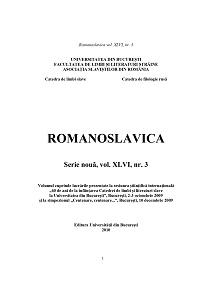Elementele folclorice din poezia lui Matja Bečković între raţionament politic şi aspiraţie identitară
Folkloric elements in Matja Bečković's poetry between political reasoning and identity aspiration
Author(s): Armand GuţăSubject(s): Poetry, Montenegrine Literature, Serbian Literature, South Slavic Languages, Theory of Literature, Sociology of Literature
Published by: Editura Universităţii din Bucureşti
Keywords: identity; folklore; ethos; ethnos; emic; ethic; politics;
Summary/Abstract: Matija Bećković (Матија Бећковић) was born on November 29, 1939 in Senta, in the Serbian province of Vojvodina to Serbian parents from Montenegro. He graduated from the Valjevo Gymnasium in Valjevo in 1958. It was during his gymnasium years in Valjevo that he published his first poem, in the journal „Mlada Kultura”. Furthermore, it was also in Valjevo that Bećković met Vera Pavladoljska, to whom the poem of the same name, published in 1960, was dedicated. This poem remains one of his most widely known and read poems. Bećković went on to Marry Pavladoljska, and he remained married to her until her death. Upon graduating from the Valjevo gymnasium, he entered the University of Belgrade and graduating with a degree in Yugoslav and world literature. He became a corresponding member of the Serbian Academy of Sciences and Arts in 1983, becoming a full member in 1991. He is one of the most prominent Serbian poets of the 20th century. Bećković is a close friend of Serbian Prime Minister Vojislav Koštunica, and an active supporter of his Democratic Party of Serbia. He lives in Belgrade since 1960. On the Montenegrin independence referendum, 2006, Bećković did not vote since he lives in Serbia. However, he, as the most prominent figure in the block against Montenegrin independence, gave passionate speeches against separation. A distinguishing feature of Bećković’s poetry is its regionalism. Distinctly Montenegrin archaic dialect and phraseology permeate his work. This aspect of his work is most often lost when one reads it in translation. Even so, other features that distinguish Bećković’s poetry in the cannon of South Slavic literature will not be lost on the foreign reader. Bećković’s poetry often strikes the reader as profoundly rhetorical. By the same stroke, he avoids the danger of didacticism that often comes hand in hand with the resort to rhetoric. He does so by insisting on the entertaining aspect of his poetry, regardlessly of the subject matter, ranging from love, over politics, to theology. His poetic mains works are: Vera Pavladoljska; Metak Lutalica; Tako je govorio Matija; Dr. Janez Paćuka; O međuvremenu; Če: Tragedija koja traje (Published in English as Che: Permanent Tragedy); Reče mi jedan čovek; Međa Vuka Manitoga; Lele i kuku; Dva sveta; Poeme; Služba Svetom Savi; O Njegošu; Kaža; Čiji si ti Mali?; Nadkokot; Služba; Sabrane pesme; Kosovo najskuplja srpska reč ; Ćeraćemo se još; Kad budem mlađi.
Journal: Romanoslavica
- Issue Year: XLVI/2010
- Issue No: 3
- Page Range: 61-69
- Page Count: 9
- Language: Romanian

